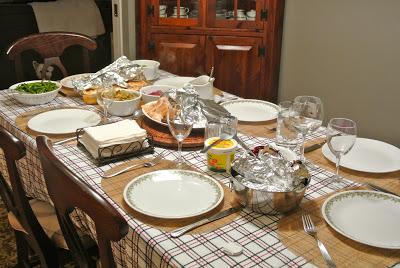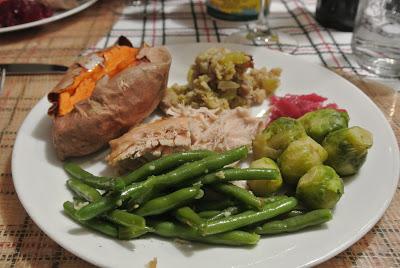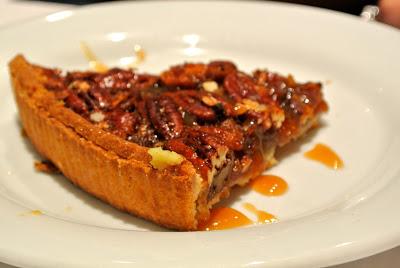 You may or may not know this, but our nutrition-based approach to eating is very much an American thing. How'd it come about? In Quantifying the American Eater: USDA nutrition guideance and a language of numbers, Jessica Mudry explains: "In order to better 'assimilate' these new Americans, Progressive reformers, under the aegis of both public and privately funded organizations, attempted to teach Americans how to live, dress, be tasteful consumers, and eat," (235). Yes, you read the right. Calories are a unit of measurement for energy, vitamins are organic chemical compounds which must be obtained from the diet, and all this scientific discourse was developed in order to provide a concept for what "a standard American diet" was; what it is.
You may or may not know this, but our nutrition-based approach to eating is very much an American thing. How'd it come about? In Quantifying the American Eater: USDA nutrition guideance and a language of numbers, Jessica Mudry explains: "In order to better 'assimilate' these new Americans, Progressive reformers, under the aegis of both public and privately funded organizations, attempted to teach Americans how to live, dress, be tasteful consumers, and eat," (235). Yes, you read the right. Calories are a unit of measurement for energy, vitamins are organic chemical compounds which must be obtained from the diet, and all this scientific discourse was developed in order to provide a concept for what "a standard American diet" was; what it is. What's the problem? Well, "the eater becomes a fictional aggregate of numbers and statistics," (Mudry 250). And when we need to eat in order to live, and when what we eat is based on hunger, availability, price, and desire, including the desire to "be good" and "eat well"... things get pretty damn complicated "On the one hand, our advice about the health benefits of diets based largely on food plants--fruits, vegetables and grains--has not changed in more than 50 years and is consistently supported by ongoing research. On the other hand, people seem increasingly confused about what they are supposed to eat to stay healthy," (Food Politics: How the Food Industry Influences Nutrition and Health, Nestle).
What's the problem? Well, "the eater becomes a fictional aggregate of numbers and statistics," (Mudry 250). And when we need to eat in order to live, and when what we eat is based on hunger, availability, price, and desire, including the desire to "be good" and "eat well"... things get pretty damn complicated "On the one hand, our advice about the health benefits of diets based largely on food plants--fruits, vegetables and grains--has not changed in more than 50 years and is consistently supported by ongoing research. On the other hand, people seem increasingly confused about what they are supposed to eat to stay healthy," (Food Politics: How the Food Industry Influences Nutrition and Health, Nestle). Most alarming is the fact that, "at the level of everyday experience, nutritionism has given rise to and promoted the nutritional gaze--a way of looking at and encountering food as being composed as nutrients, which overwhelms other ways of encountering and sensually experiencing food," (On the Ideology of Nutritionism, Scrunis 46). Why should we care? Because in addition to simply confusing us, this "nutritional gaze" also has the power to exceptionally distort our relationship with the food we eat. As Carole M. Counihan pointed out in her book, The Anthropology of Food and Body: Gender, Meaning, and Power: "Personal expression of willpower and release of control only under certain culturally sanctioned conditions are the key issues in their relationship to food an in their overall ideology of life," (118).
Most alarming is the fact that, "at the level of everyday experience, nutritionism has given rise to and promoted the nutritional gaze--a way of looking at and encountering food as being composed as nutrients, which overwhelms other ways of encountering and sensually experiencing food," (On the Ideology of Nutritionism, Scrunis 46). Why should we care? Because in addition to simply confusing us, this "nutritional gaze" also has the power to exceptionally distort our relationship with the food we eat. As Carole M. Counihan pointed out in her book, The Anthropology of Food and Body: Gender, Meaning, and Power: "Personal expression of willpower and release of control only under certain culturally sanctioned conditions are the key issues in their relationship to food an in their overall ideology of life," (118). "In fact, women are much more likely than men to be the targets of judgment comments made by both women and men on all topics related to eating. The acceptance of this fact and its constant reproduction by women as well as men reinforces the subordinate position of women, who are judged, relative to men, who do the judging. Given the importance of being attractive to men in the college 'culture of romance' (Holland and Eisenhart 1990), it is no wonder that my female informants devote a great deal of time and energy worrying about their weight and food consumption," (Counihan 125).
"In fact, women are much more likely than men to be the targets of judgment comments made by both women and men on all topics related to eating. The acceptance of this fact and its constant reproduction by women as well as men reinforces the subordinate position of women, who are judged, relative to men, who do the judging. Given the importance of being attractive to men in the college 'culture of romance' (Holland and Eisenhart 1990), it is no wonder that my female informants devote a great deal of time and energy worrying about their weight and food consumption," (Counihan 125).
The fourth photo above was taken at last year's Thanksgiving dinner in Paris. The first three were taken the day before I left New York. On January 10th, my mom reflected on the fact that neither she, myself, nor my younger sister had been able to enjoy it at home, so she decided to belatedly celebrate my favorite holiday. Gosh, do I love my mom. I may have figured out another reason I love Thanksgiving, too; it's one of the few days of the year I actively choose not to consider nutrition. No matter how much travel has inspired me with alternative approaches, I suppose I'll always be American in this way. I can be okay with that though. "Good food" can have a place in my diet, just as long as I leave enough room for other good food. Especially being that it's National Eating Disorders Awareness (NEDA) Week, I sincerely hope you're able to do the same.

